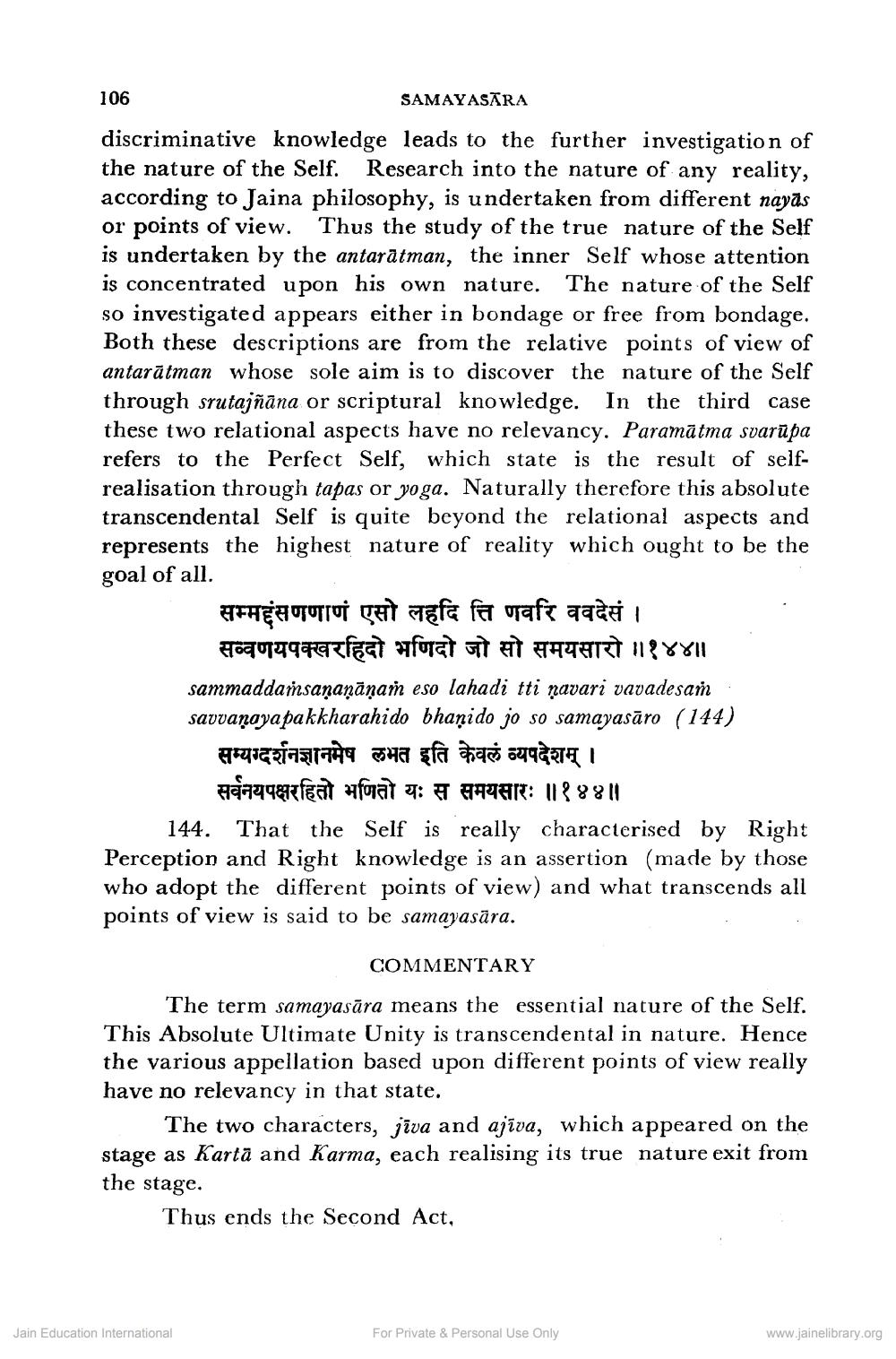________________
106
SAMAYASĀRA
discriminative knowledge leads to the further investigation of the nature of the Self. Research into the nature of any reality, according to Jaina philosophy, is undertaken from different nayās or points of view. Thus the study of the true nature of the Self is undertaken by the antarātman, the inner Self whose attention is concentrated upon his own nature. The nature of the Self so investigated appears either in bondage or free from bondage. Both these descriptions are from the relative points of view of antarātman whose sole aim is to discover the nature of the Self through srutajñāna or scriptural knowledge. In the third case these two relational aspects have no relevancy. Paramātma svarūpa refers to the Perfect Self, which state is the result of selfrealisation through tapas or yoga. Naturally therefore this absolute transcendental Self is quite beyond the relational aspects and represents the highest nature of reality which ought to be the goal of all.
सम्मइंसणणाणं एसो लहदि त्ति णवरि ववदेसं ।
सव्वणयपक्खरहिदो भणिदो जो सो समयसारो ॥१४४॥ sammaddamsaņaņāņam eso lahadi fti ņavari vavadesam savvaņayapakkharahido bhaạido jo so samayasāro (144)
सम्यग्दर्शनज्ञानमेष लभत इति केवलं व्यपदेशम् ।
सर्वनयपक्षरहितो भणितो यः स समयसारः ॥१४४॥ 144. That the Self is really characterised by Right Perception and Right knowledge is an assertion (made by those who adopt the different points of view) and what transcends all points of view is said to be samayasära.
COMMENTARY
The term samayasāra means the essential nature of the Self. This Absolute Ultimate Unity is transcendental in nature. Hence the various appellation based upon different points of view really have no relevancy in that state.
The two characters, jīva and ajīva, which appeared on the stage as Kartā and Karma, each realising its true nature exit from the stage.
Thus ends the Second Act,
Jain Education International
For Private & Personal Use Only
www.jainelibrary.org




